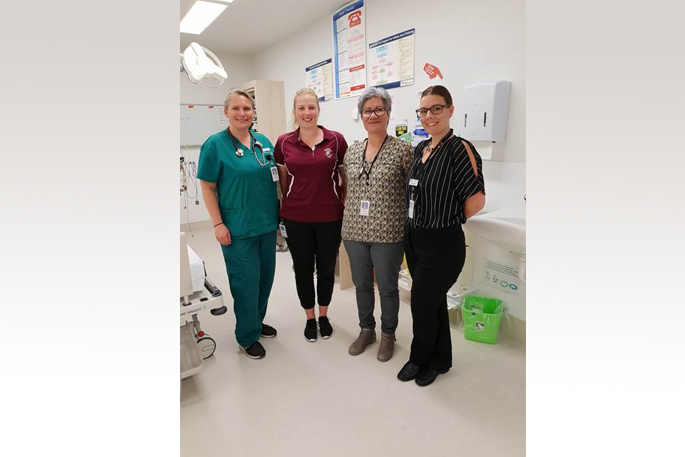Tailoring patients to the most appropriate health professionals in the timeliest way is the thought-process behind a successful Whakatāne Hospital Emergency Department project.
A small group of health professionals known as the ALPHA team has been working closely with ED doctors and nurses over the last six months identifying incoming patients whose treatment aligns with their professions.
These include: physiotherapists, occupational therapists, podiatrists, pharmacists and nurse specialists. For many patients the team's work has meant faster treatment and shorter hospital stays.
'It's a shift from the traditional way of doing things where those patients were only seen by those types of health professionals once they'd either been admitted to a ward or from an ED referral,” says Whakatāne Hospital ED Clinical Lead Dr Tamsin Davies.
'For patients picked up by the ALPHA team what we're finding is that they are getting the healthcare they need much sooner. Particularly our older patients (75+), faster treatment means a better recovery and less time spent in hospital.”
Dr Davies says some patients were also avoiding a hospital stay altogether by being connected with the right health support they need in the community.
The ALPHA team attends three whiteboard rounds in ED a day, meeting with the ED nursing and medical team, identifying patients who would benefit from their health skills.
'They pick up a broad range of things such as fitting appropriate splints, reviewing medications and coordinating care in the community for patients with complex health needs,” said Dr Davies.
The team is part of a broader programme to improve the care treatment pathway, making better use of hospital resources and saving patients' time in the process.
'We're constantly looking at ways to improve the timeliness and quality of care provided at the hospital,” says Service Improvement Programme Manager Fiona Burns. 'We don't want patients waiting unnecessarily when there's no good medical reason to do so.
'We have been monitoring progress closely and since the programme began approximately 7 out of 10 patients are going home a day earlier.”
Globally research shows just a few days in bed can reduce muscle strength and increase the risk of complications, particularly for our frail older patients.
Getting older patients up and moving has been shown to reduce falls, and reduce their length of hospital stay by up to 1.5 days.



0 comments
Leave a Comment
You must be logged in to make a comment.